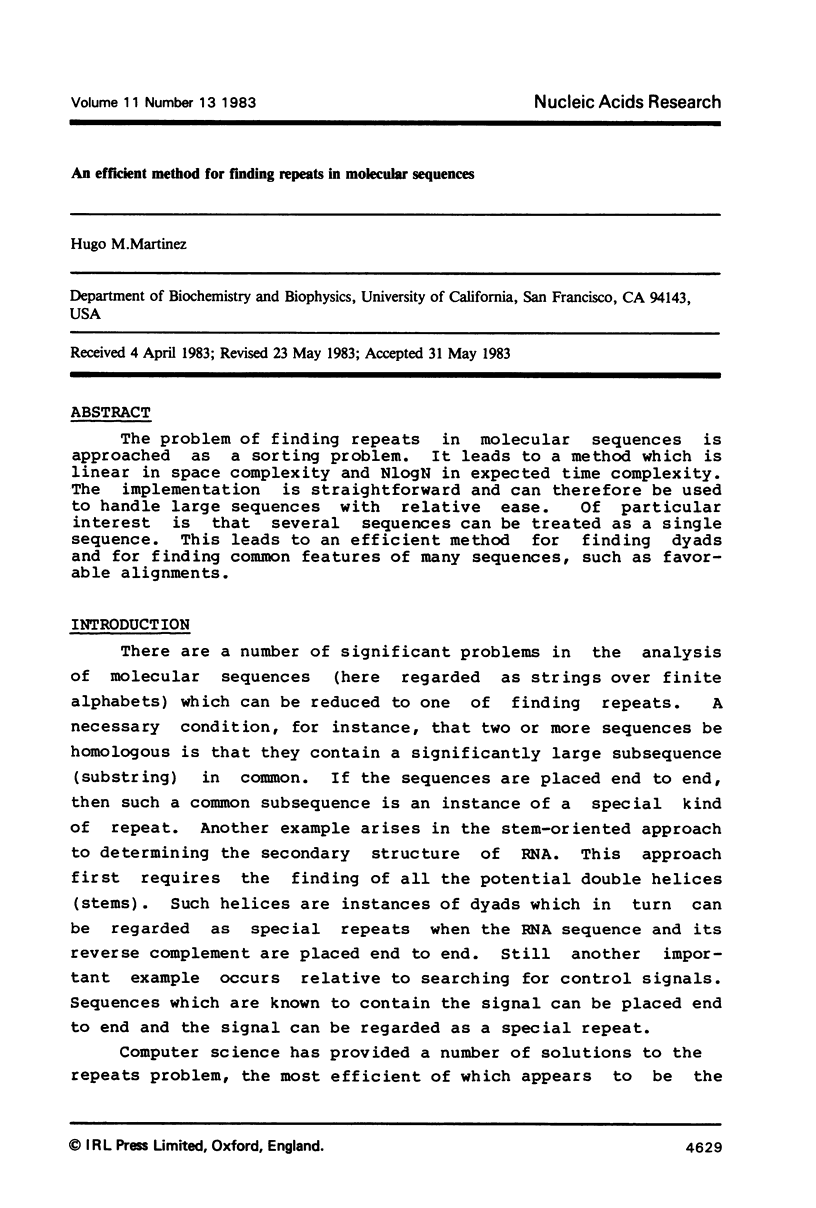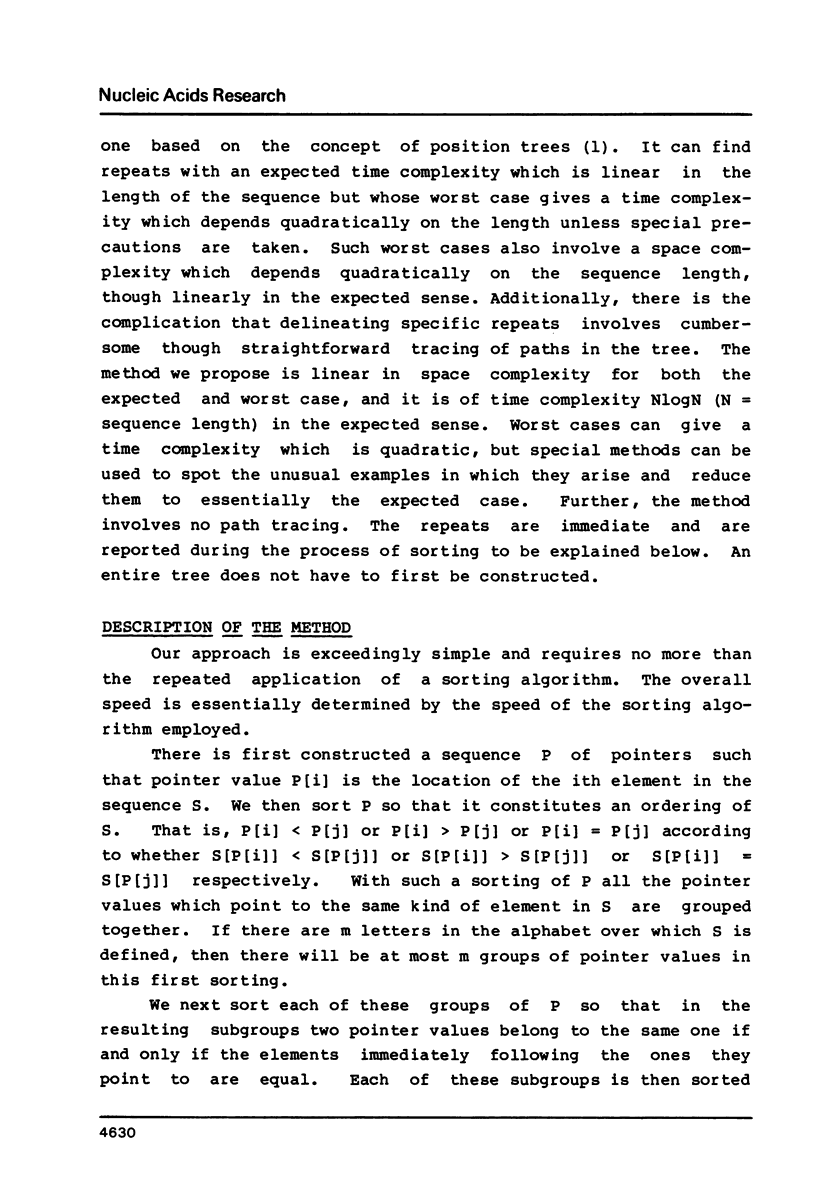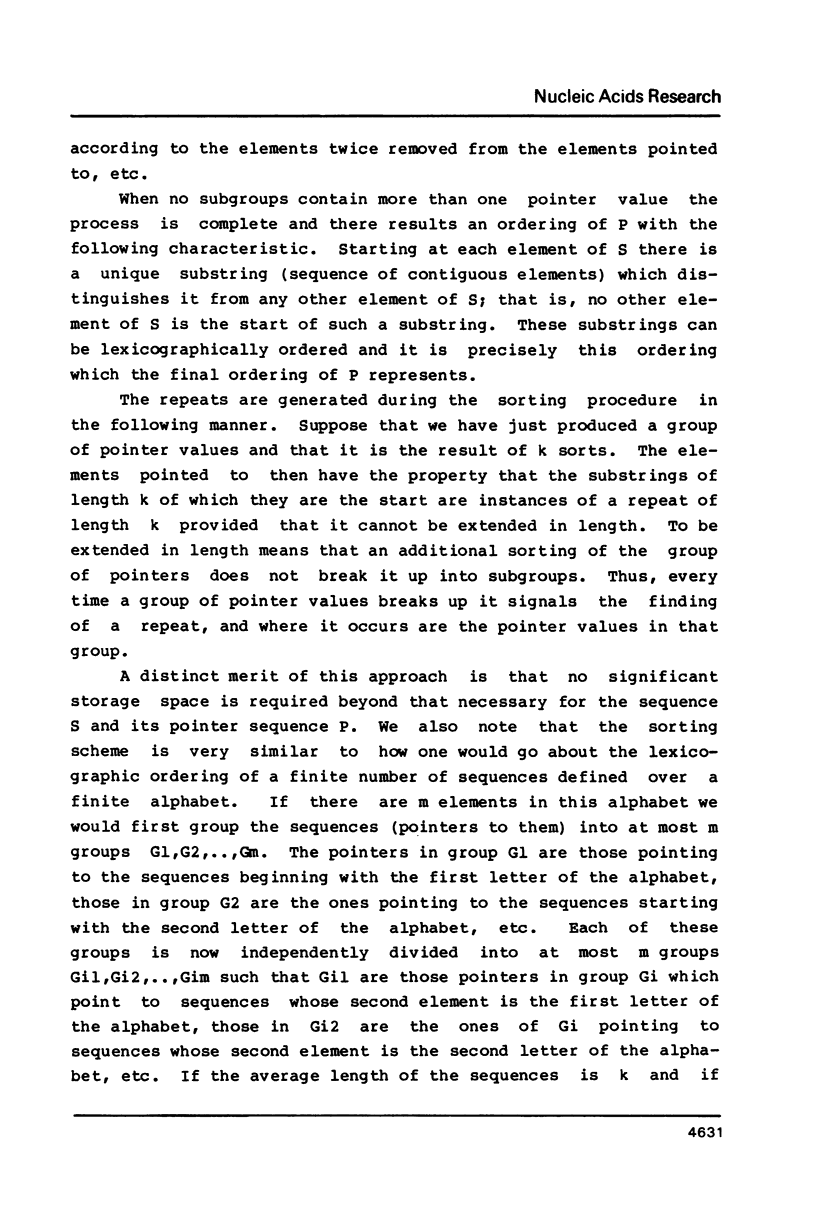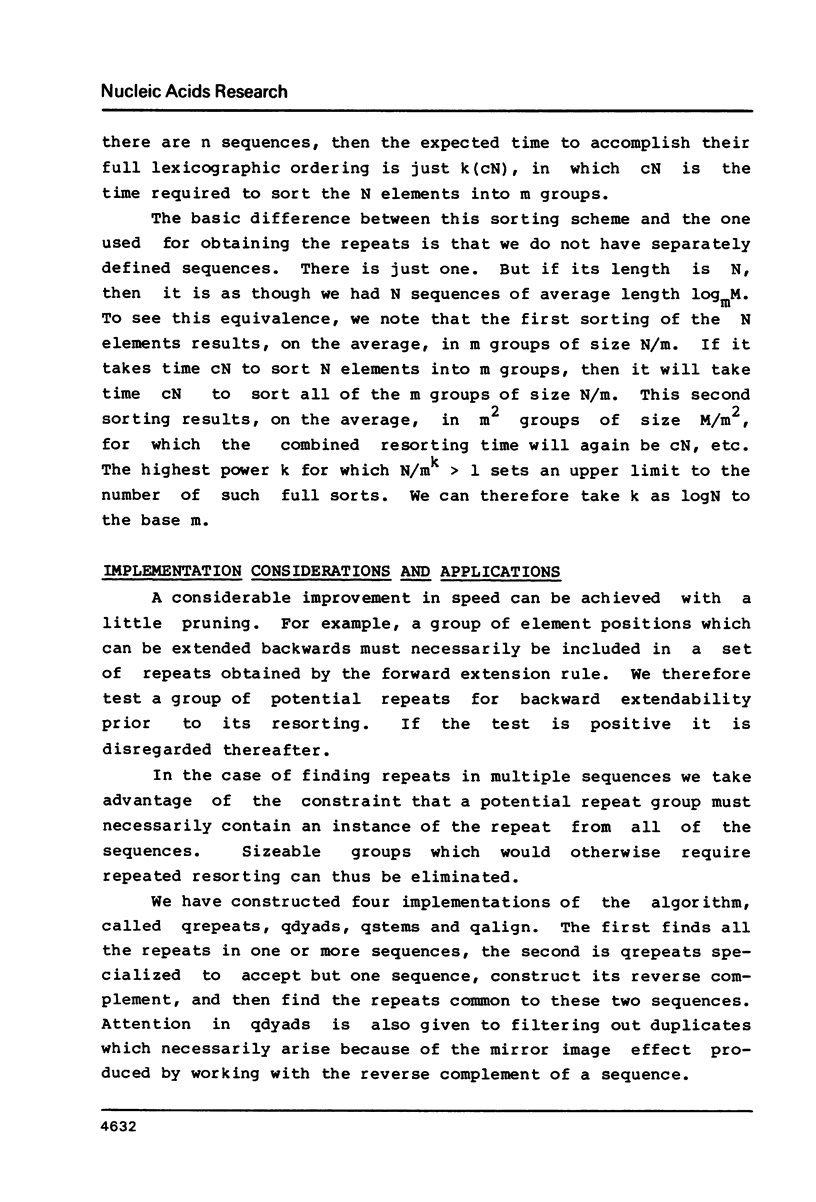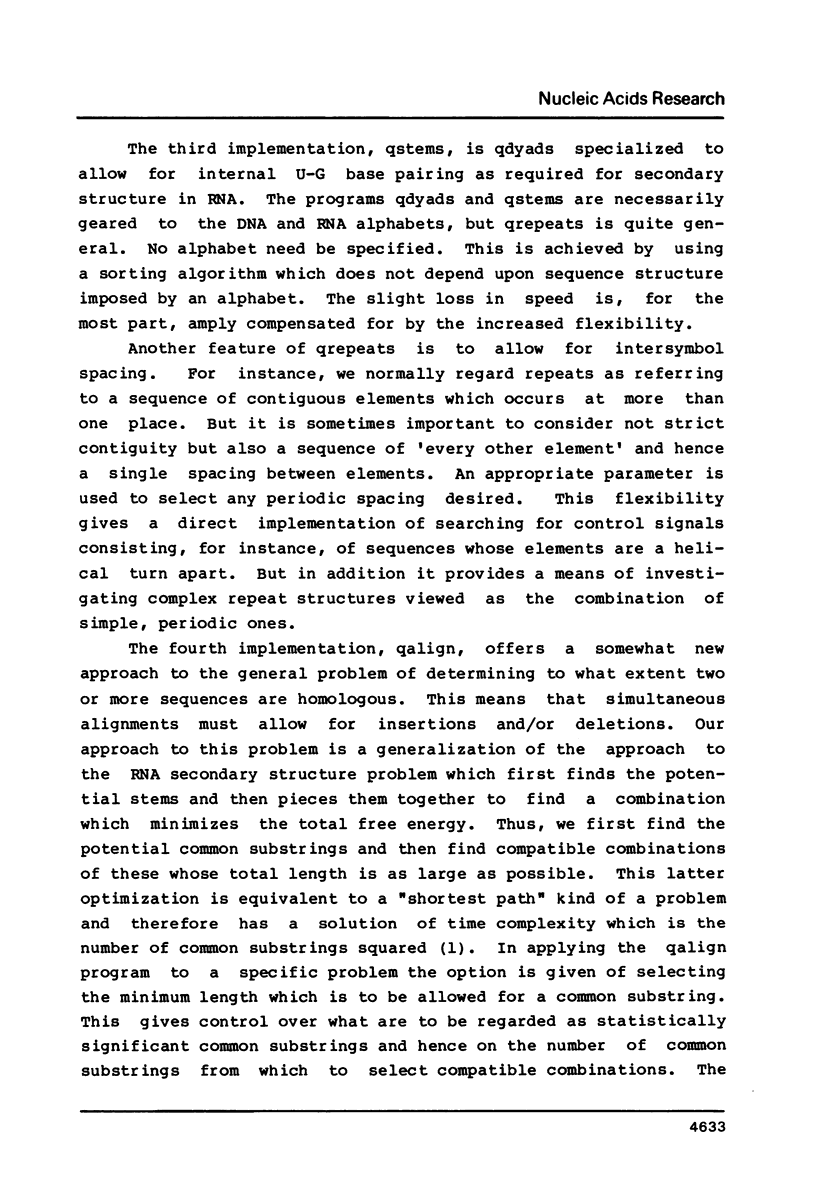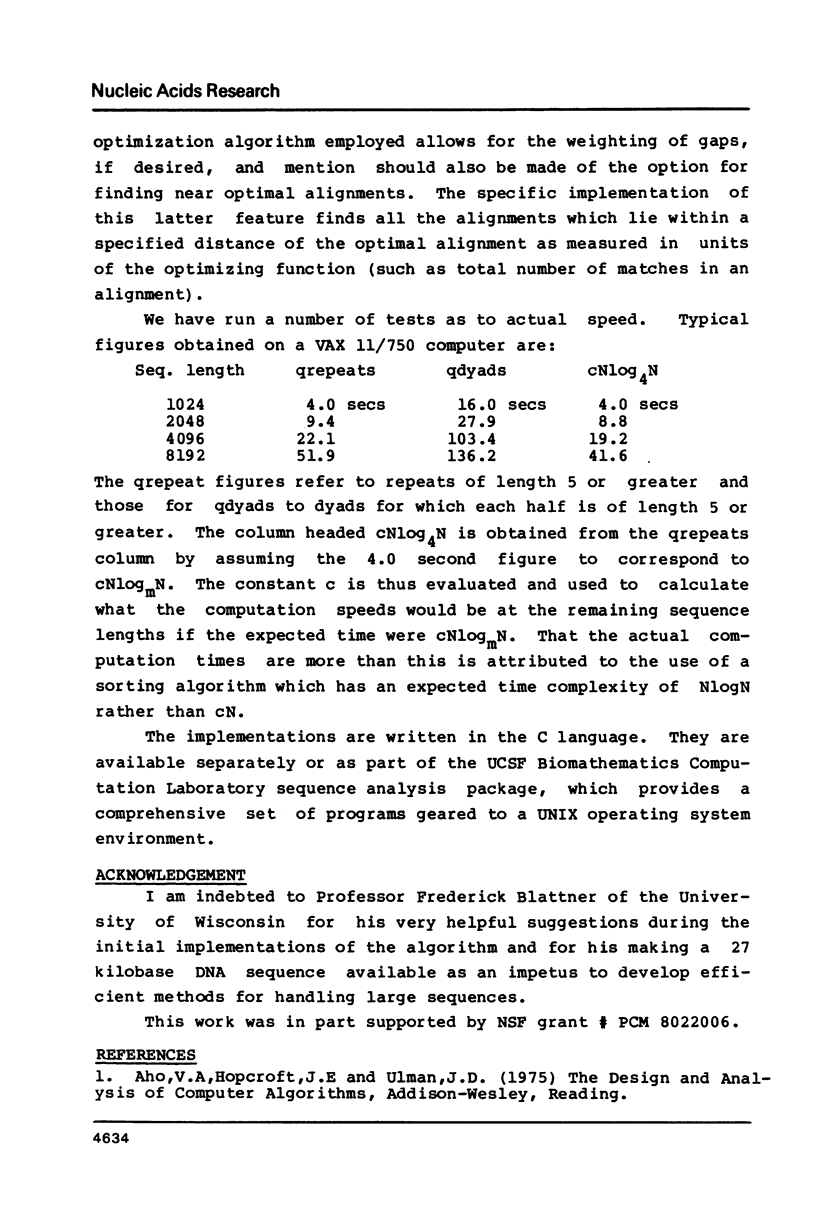Abstract
The problem of finding repeats in molecular sequences is approached as a sorting problem. It leads to a method which is linear in space complexity and NlogN in expected time complexity. The implementation is straightforward and can therefore be used to handle large sequences with relative ease. Of particular interest is that several sequences can be treated as a single sequence. This leads to an efficient method for finding dyads and for finding common features of many sequences, such as favorable alignments.
Full text
PDF